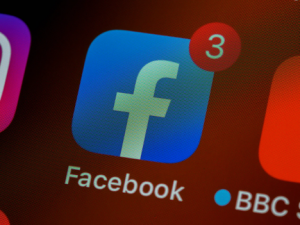
Facebook is the heavyweight of social media platforms, dominating the others with 2.45 billion monthly users. While those numbers make it a great resource for information and interaction, they also make FB fertile ground for phishing scams.
Phishers dupe people into disclosing confidential information such as passwords, usernames, bank accounts and credit cards. They may also install malware that extracts this data. The attackers convincingly disguise themselves as legitimate entities, but there are ways to identify them and protect yourself.
Messages That Convey a Sense of Urgency
Con artists weaponize fear to cloud people’s judgment and pressure them into rash actions. Trigger words include “immediately,” “expires,” “late” and “hurry.” For example, scammers may steal your FB password and break into your account by warning you that you must immediately reset it or you’ll be locked out.
Protecting Yourself from Facebook Phishing
In this scam, the phisher will send you a message, supposedly from one of your friends, containing a video link. They’ll say something such as, “You’re in this video! Check it out!” However, if you click on the link you’ll get redirected to a cloned Facebook website where your personal information can be stolen.
Fake Tickets to Streaming Concerts
The COVID-19 pandemic has forced musicians to perform virtual shows. As of April 28, FB has permitted them to charge for access to FB Live Streaming Concerts. Unfortunately, scammers have devised a way to skim these revenues. They place their own links on the events page, which redirects the unsuspecting victims to a bogus live-streaming link where their money is pilfered.
Suspicious Friend Requests
Phishers are tech-savvy and can clone an entire FB page, passing themselves off as one of your friends. From there, they send you a link with an enticement such as how to become a millionaire. If this came from a stranger, you might be skeptical. However, since it supposedly came from a trusted friend, you click the link and unintentionally download malware.
Offers of COVID-19 Treatments
Scammers don’t regard a pandemic as a tragedy but an opportunity. With the world gripped by terror, phishers prey upon people’s fear and desperation. They pose as health professionals who request personal information or offer an exorbitantly priced “miracle” cure. They might also hijack a friend’s account, sending you a message that they’ve been infected and need money.
Scammers who go on phishing expeditions often seek victims on Facebook because of its huge user base. They are cunning and sophisticated, and they can often pull off schemes that are hard to differentiate from the real thing. With the help of the information above, you can spot these phishers before they get their hooks into you.
